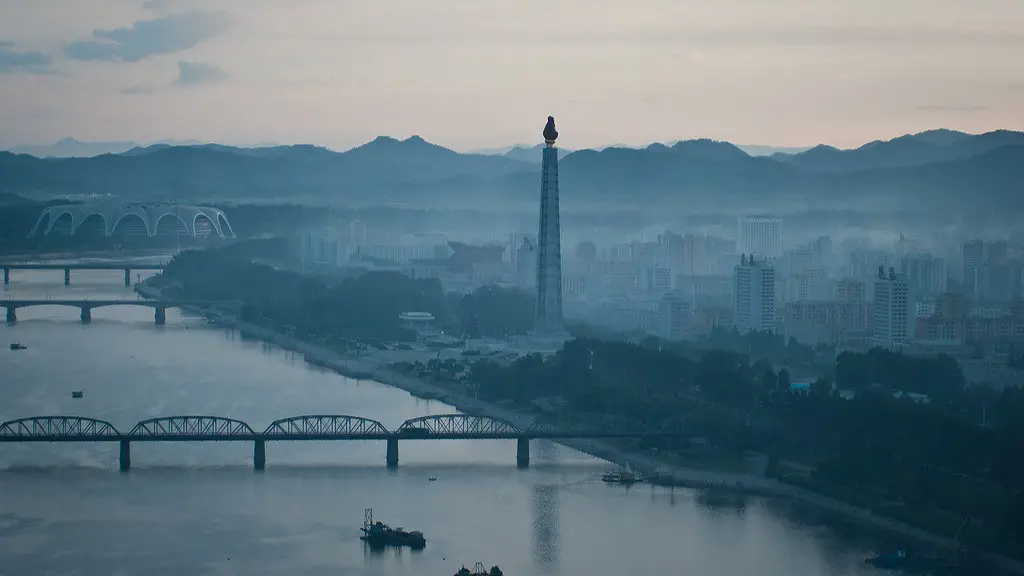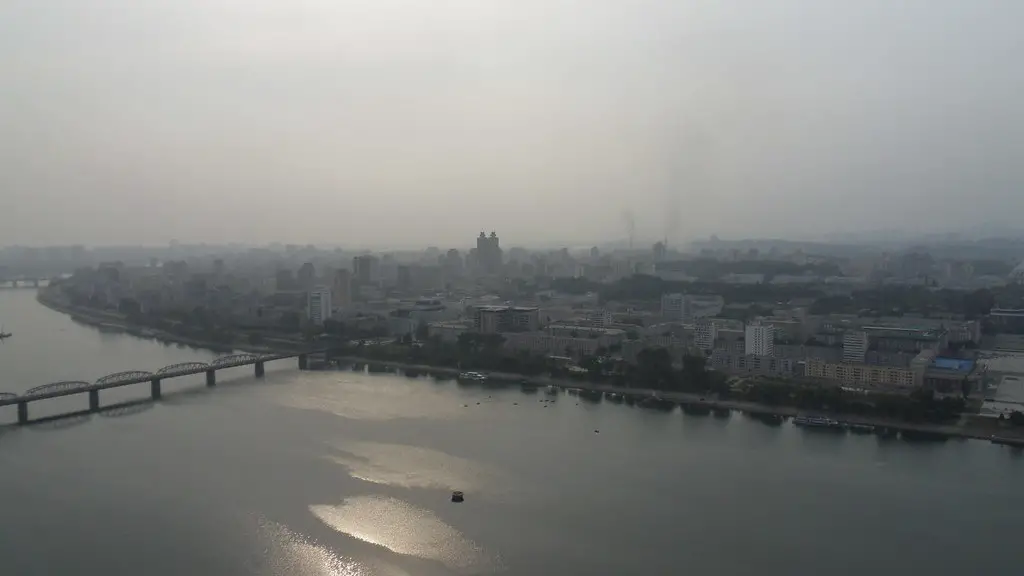Orwellian Censorship in North Korea
North Korea is an autocratic nation that has enforced one of the most oppressive regimes on earth. It has been described as an Orwellian state, in which almost nothing is known about the society from the outside. This isolationism has resulted in a level of censorship that has been compared to the dystopian novel 1984, in which government control of information is highly restricted.
In North Korea, access to outside news and information is tightly monitored and censored by the state. There is only one TV station run by the state, and citizens are not allowed to access the internet or have radio receivers capable of picking up foreign signals. The media does not report on political matters, and instead focuses solely on praising the regime and its leader, Kim Jong-Un. All media sources are subject to government censorship, and the circulation of any materials that criticize the government or its leaders is strictly forbidden.
The government also implements a policy of strict surveillance of its own citizens. Citizens are watched by the state, and all forms of dissent are punished severely. Any action that is perceived as ‘anti-state’ or subversive is punished, either by detention or by execution. Citizens are expected to report any subversive behavior to the government, and to remain loyal to the state.
Similar to Orwell’s 1984, North Korea’s government also uses propaganda to control the populace. The state promotes a cult of personality centered on Kim Jong-Un, and propagates the idea of North Korea being an isolated, utopian state. This has been effective in reducing dissent, as citizens are socially and economically dependent on the government, and therefore actively discouraged from engaging in any anti-state activities.
Despite attempts to control information from the outside world, some North Korean citizens are becoming increasingly aware of the state’s shortcomings, especially regarding basic human rights. This is due to a growing number of defectors from the country, and homemade DVDs and USB sticks full of foreign media which have been smuggled into the country. These sources of foreign media have allowed individuals to gain outside knowledge about the world and the economic and social disadvantages of living in North Korea.
Economic Isolation From the World
North Korea’s economic isolation from the world has made it difficult to reform and improve the economy. International sanctions imposed by the UN, including restrictions on trade and financial activities, have had an immensely destabilizing effect on the country’s economy. This has resulted in near-total economic collapse, with an estimated two-thirds of the population suffering from food insecurity.
The state has imposed an intrusive system of state control over the economy that has further exacerbated the country’s economic struggles. The government strictly controls wages and prices, as well as access to resources like electricity and water. This system of control prevents market forces from being able to react to market changes, reducing the ability of the economy to recover from economic shocks.
The state also strictly controls international trade and has refused to communicate with other nations. This has further worsened the economic situation, as North Korean goods have been subjected to bans and sanctions, which has reduced the earning power of North Koreans and reduced the availability of goods and services.
In addition, North Korea has very high levels of corruption. Government officials have routinely been accused of engaging in bribery, embezzlement, and extortion. The government has refused to investigate or punish these crimes, resulting in a pervasive culture of corruption that has enabled powerful elites to enrich themselves at the expense of ordinary citizens.
Human Rights Abuses
North Korea has been accused of numerous human rights abuses, including the abduction of citizens from other countries for forced labor and the mistreatment of political prisoners. Thousands of citizens are also known to be held in political prison camps, where abuses such as torture, forced labor, and starvation are said to be rampant.
Defectors have reported that the government controls nearly every aspect of citizens’ lives, including access to food, healthcare, and education. Citizens are encouraged to inform on each other and to prevent any form of dissent. Freedom of speech and assembly are severely restricted, and those who do speak out against the regime risk detention or execution.
The government has also been accused of directly targeting religious minorities, as well as those who practice or promote any faith other than official state-controlled Christianity or traditional Buddhism. Those accused of being in opposition to the official state ideology are also persecuted, with some being sent to political prison camps or being executed.
Social Isolation From the World
North Korea is very isolated from the rest of the world. This isolation is enforced by the state through tight restrictions on travel and the media, as well as through the use of fear and propaganda. This isolation has resulted in North Koreans having very limited knowledge and understanding of the rest of the world.
The government has also limited citizens’ access to outside sources of information, such as foreign books, movies, and music. This has resulted in North Koreans having almost no knowledge of foreign cultures, customs, or current affairs, as well as limited understanding of world events or changes in global politics.
Due to the isolation and the state’s tight control over information, North Koreans have very limited knowledge of the outside world. This has resulted in a lack of international solidarity and empathy on the part of the populace, as they are unaware of international issues that may affect them or their country.
Psychological Control
The government of North Korea has also implemented psychological tactics to instill fear and ensure compliance of its citizens. This includes the use of threats, intimidation, and public shaming, as well as deadlines and other means of coercion. Individuals are expected to conform to the rules and expectations of the state, or face severe consequences.
The state has also controlled citizens using the tactics of bribery and reward. Those who are compliant and loyal to the regime are rewarded with promotions and other privileges, while those who disobey or challenge the state are punished. This has been successful in instilling a sense of fear and submission among the populace.
The state has also implemented a strategy of divide and conquer by pitting segments of the population against each other. This is done by encouraging rivalries and using propaganda to create tribal and ethnic divisions. This has resulted in North Koreans being less willing to challenge the state, and has had an immensely destabilizing effect on the nation.
Totalitarian Leadership
North Korea is ruled by a totalitarian regime that suppresses and controls almost every aspect of citizens’ lives. The government and its leaders are characterized as infallible and omnipotent, and all political decisions emanate from the supreme leader, Kim Jong-Un. The government also has an extensive intelligence apparatus which monitors citizens’ activities and ensures that no dissent goes unpunished.
The state strictly enforces a policy of loyalty and obedience to the rulers, and citizens are not allowed to have any contact with foreigners or any foreign literature. This has enabled the government to maintain a high level of control over its citizens, and has made it difficult for any opposition to the government to gain traction.
North Korea’s totalitarian regime has been compared to Orwell’s 1984, as both have implemented Draconian policies to maintain power and oppress their citizens. This has resulted in a highly oppressive and repressive state in North Korea, and has allowed the government to maintain power and to prevent any potential opposition from gaining traction.
In conclusion
The similarities between North Korea and Orwell’s 1984 are striking, as both feature oppressive governments that view control and censorship as essential to their survival. In North Korea, citizens are subjected to tight restrictions on their access to information, economic exploitation, abuses of human rights, and psychological manipulation. The state has also implemented a policy of intense surveillance and control, and has isolated its citizens from the outside world. All of these policies have resulted in a highly oppressive state, which presents in many ways as a modern-day version of Orwell’s 1984.

